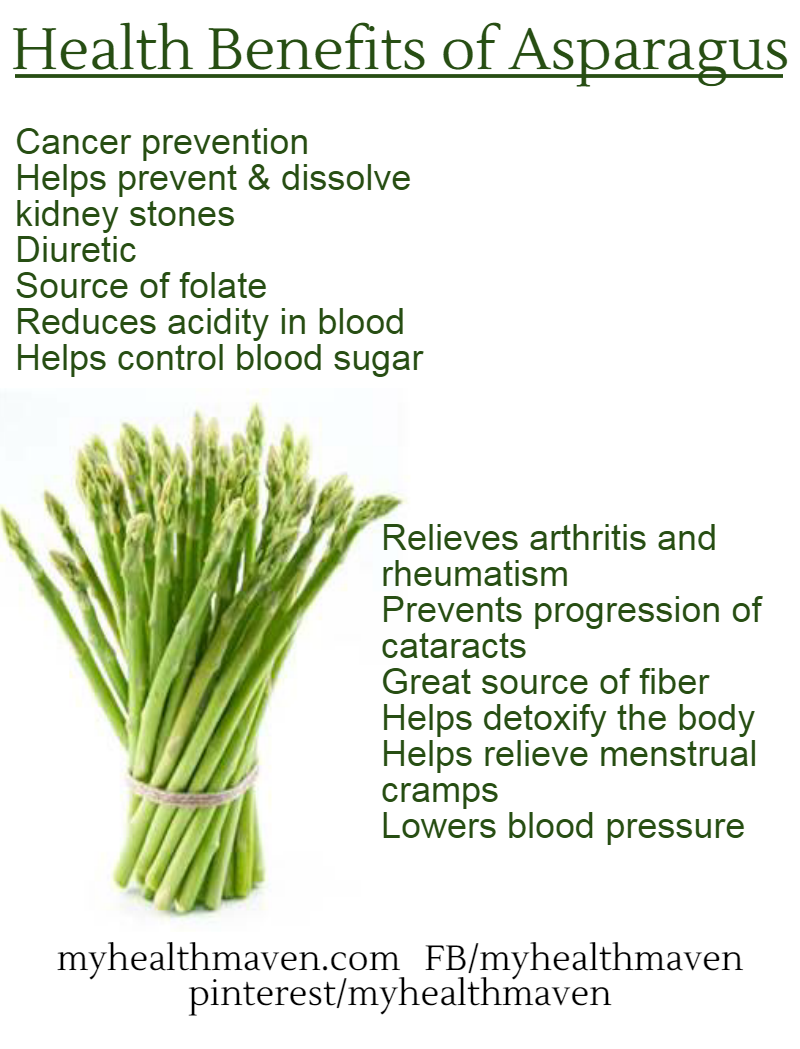How Healthy Is Asparagus? Nutritional Benefits And Health Effects

Table of Contents
The Nutritional Powerhouse of Asparagus
Asparagus is surprisingly packed with essential nutrients, making it a true nutritional powerhouse. Understanding its vitamin and mineral content is key to appreciating its health benefits.
Vitamins and Minerals
Asparagus is an excellent source of several vital vitamins and minerals:
- Vitamin K: Crucial for blood clotting and bone health. A single serving of asparagus provides a significant percentage of your daily recommended intake.
- Folate (Vitamin B9): Essential for cell growth and development, particularly important during pregnancy. Folate deficiency can lead to serious health issues.
- Vitamin A: Supports vision, immune function, and cell growth. Asparagus contributes to your daily Vitamin A needs.
- Vitamin C: A potent antioxidant that boosts the immune system and protects against cell damage.
- Potassium: Important for maintaining healthy blood pressure and fluid balance. Asparagus is a good source of potassium, which is often lacking in modern diets.
Antioxidants in Asparagus
Beyond vitamins and minerals, asparagus boasts impressive antioxidant properties. Antioxidants combat free radicals, unstable molecules that can damage cells and contribute to aging and chronic diseases. Asparagus contains glutathione, a powerful antioxidant that plays a vital role in protecting your cells from oxidative stress.
- Protection against Chronic Diseases: The antioxidants in asparagus are linked to a reduced risk of various chronic diseases, including:
- Cancer: Studies suggest a potential link between asparagus consumption and a lower risk of certain cancers.
- Heart Disease: The combination of antioxidants and potassium contributes to cardiovascular health.
Health Benefits of Asparagus Consumption
The nutritional profile of asparagus translates into a range of potential health benefits.
Improved Digestive Health
Asparagus is a good source of dietary fiber, which is crucial for maintaining a healthy digestive system.
- Improved Bowel Regularity: Fiber adds bulk to your stool, promoting regular bowel movements and preventing constipation.
- Prebiotic Effects: Asparagus acts as a prebiotic, feeding beneficial bacteria in your gut and supporting a healthy gut microbiome. A healthy gut is crucial for overall well-being.
Cardiovascular Health Support
The nutrients in asparagus contribute significantly to cardiovascular health.
- Blood Pressure Regulation: The potassium content helps regulate blood pressure, reducing the risk of hypertension.
- Reduced Risk of Stroke: The antioxidant properties protect blood vessels and reduce the risk of stroke.
- Improved Blood Vessel Function: The nutrients in asparagus contribute to overall better blood vessel health.
Potential Cancer-Fighting Properties
Research suggests that asparagus may possess cancer-fighting properties. This is attributed to various compounds, including glutathione. However, it's important to note that this is an area of ongoing research, and more studies are needed to confirm these potential benefits.
- Ongoing Research: While promising, the research is still ongoing and doesn't provide definitive proof of cancer prevention. Always consult your doctor for health advice.
Potential Drawbacks and Considerations
While generally safe and healthy, there are a few points to consider regarding asparagus consumption.
Allergies and Sensitivities
Some individuals may experience allergic reactions to asparagus, ranging from mild skin irritation to more severe symptoms. If you experience any allergic symptoms, discontinue consumption and consult a doctor.
Medication Interactions
Asparagus doesn't typically interact with medications, but it's always wise to consult your doctor before making significant dietary changes, especially if you are on medication.
Preparation Methods and Nutrient Retention
Different cooking methods can affect the nutritional content of asparagus. Steaming or lightly grilling asparagus retains more nutrients compared to boiling.
Conclusion
In conclusion, asparagus offers a wealth of health benefits due to its impressive nutritional profile. Rich in vitamins, minerals, and antioxidants, asparagus supports digestive health, cardiovascular health, and may even offer protection against chronic diseases. Discover the delicious and nutritious benefits of adding asparagus to your meals. Start exploring new recipes and reap the rewards of this healthy vegetable today! Learn more about the amazing health benefits of asparagus and how to incorporate it into your diet for optimal health. Finding healthy asparagus recipes is easier than you think!

Featured Posts
-
 Melding Gaslucht In Roden Vals Alarm
May 01, 2025
Melding Gaslucht In Roden Vals Alarm
May 01, 2025 -
 Royal Initiative Prince William And Kate Announce Key Partnership
May 01, 2025
Royal Initiative Prince William And Kate Announce Key Partnership
May 01, 2025 -
 Ramos Leads France To Six Nations Victory Scotland Rout
May 01, 2025
Ramos Leads France To Six Nations Victory Scotland Rout
May 01, 2025 -
 Omni Scores Dragons Den Investment A Game Changer For Plant Based Pet Food
May 01, 2025
Omni Scores Dragons Den Investment A Game Changer For Plant Based Pet Food
May 01, 2025 -
 Hollywood Stars Generous Donation In Wake Of Tata Steel Layoffs
May 01, 2025
Hollywood Stars Generous Donation In Wake Of Tata Steel Layoffs
May 01, 2025
